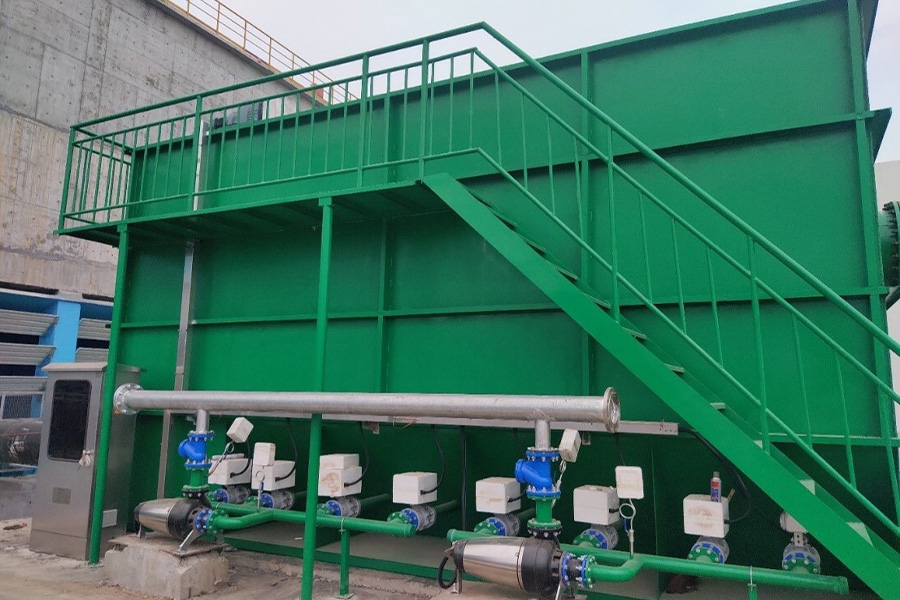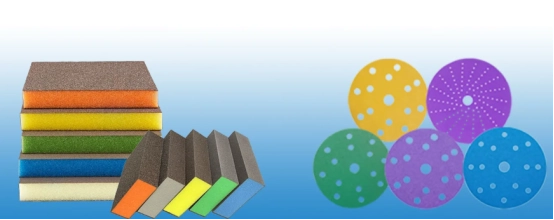In modern industrial production, the efficient utilization and recycling of water resources have become a core component of sustainable business development. Industrial water filtration equipment, particularly systems designed specifically for circulating water treatment, is becoming a crucial tool for companies to reduce wastewater discharge and conserve fresh water consumption. This article will focus on the operating principles, advantages, and application scenarios of industrial water filtration equipment, providing an in-depth analysis of its value in industrial circulating water treatment.
1. Overview of Industrial Circulating Water Filtration Systems
Industrial circulating water filtration systems are advanced filtration solutions designed specifically for industrial water reuse. These systems typically consist of rotating filter discs, a backwash system, and an integrated control/electrical system. They utilize gravity flow filtration to effectively remove suspended solids from industrial circulating water. This design not only prevents scaling in recycled water but also significantly reduces wastewater discharge and fresh water consumption, thereby addressing the problem of water waste in traditional industrial production.
Compared to traditional water treatment equipment, modern industrial water filtration equipment offers significant improvements in treatment efficiency, footprint, and automation. For example, the Jinhua Industrial Circulating Water Filtration System, with its compact vertical filtration layout, minimizes plant space while achieving fully automated operation and low energy consumption.

2. Working Principle of Industrial Water Filtration Equipment
Efficient industrial circulating water treatment requires scientific filtration processes. Industrial water filtration equipment typically consists of two core stages: filtration and backwash.
2.1 Filtration Stage
During the filtration stage, raw water first enters the main water tank. Under the influence of gravity, the water permeates through the filter cloth. The filter cloth effectively captures suspended solids in the water, ensuring that the effluent quality meets industrial standards. After passing through the filter discs and central piping, the treated water can be directly reused in the production process or discharged.
As filtration progresses, suspended solids gradually accumulate on the filter cloth surface, reducing filtration efficiency and raising the water level in the main water tank. When the water level reaches a preset threshold, the system automatically enters the backwash stage to ensure continued efficient operation of the equipment.
2.2 Backwash Stage
Backwashing is a critical step in maintaining efficient operation of industrial water filtration equipment. When the water level reaches the set value or the specified operating time has expired, the negative pressure backwash system activates. The rotating filter discs rotate slowly, sucking contaminants from the filter cloth surface. Larger particles settle to the bottom of the tank and are regularly discharged by the sludge pump for treatment. This process not only ensures the filter cloth maintains its efficient filtration capabilities over the long term, but also reduces maintenance requirements and enables fully automated operation.
3. Advantages of the Jinhua Industrial Circulating Water Filtration System
Modern industrial water filtration equipment is designed not only to ensure water quality, but also to prioritize energy efficiency, environmental protection, and ease of operation. Taking the Jinhua Industrial Circulating Water Filtration System as an example, its key features include:
3.1 Excellent Outlet Water Quality
The system can control outlet SS values below 5 mg/L and turbidity below 5 NTU (assuming inlet SS ≤ 20 mg/L). This water quality ensures the stability of industrial production processes, reduces the risk of equipment scaling and pipe blockage, and provides reliable support for recycled water reuse.
3.2 Excellent Oil Resistance
In industrial production, water often contains grease and other contaminants. The Jinhua system utilizes a specialized filter cloth design that captures oily particles and maintains stable filtration performance, even in oily environments, without compromising outlet water quality.
3.3 Compact Design, Space-Saving
Traditional water filtration systems require a large footprint, while modern industrial water filtration equipment utilizes a vertical filtration layout, reducing footprint by up to 75%. This integrated design not only facilitates installation but is also suitable for industrial plants with limited space.
3.4 Low-Energy Operation
The Jinhua industrial water filtration system boasts a head loss of only 0.7-0.9 meters, effectively reducing the energy consumption of the water circulation pump. Combined with fully automatic control and intermittent pump operation, the system achieves energy savings while ensuring efficient filtration.
3.5 Fully Automatic Operation
The equipment is equipped with a PLC control system that automatically adjusts backwashing and sludge discharge based on water level or timer, eliminating the need for manual intervention. This automated operation not only improves production efficiency but also reduces the risk of human error.
3.6 Low Maintenance Costs
The durable rotating filter discs and intermittent operation significantly reduce equipment wear and maintenance requirements. Over time, businesses can save significant maintenance costs while extending the life of the equipment.
4. Application Scenarios for Industrial Water Filtration Equipment
Industrial water filtration equipment is widely used in numerous industries, particularly where recycled water reuse or high water quality stability is required.
Chemical Industry: Used for cooling water circulation, reactor circulating water, and pre-treatment of production wastewater, improving production efficiency and reducing water treatment costs.
Pharmaceutical Industry: Ensures high purity and stability of production water, preventing equipment scaling and secondary contamination.
Food and Beverage Industry: Circulating water treatment ensures water quality safety, meets food hygiene standards, and reduces fresh water consumption.
Power Industry: In boiler circulating water and cooling water systems, industrial water filtration equipment can significantly extend equipment life and reduce downtime and maintenance.
Metalworking Industry: Used for coolant circulation and cutting fluid filtration, preventing suspended particulates from abrading mechanical equipment.
5. Key Factors in Selecting Industrial Water Filtration Equipment
To fully leverage the advantages of industrial water filtration equipment for efficient circulating water treatment, companies should consider the following factors when selecting equipment:
Water Quality Requirements: Select the appropriate filter cloth material and filtration accuracy based on the types of suspended solids and contaminants in the circulating water. System Capacity: Determine equipment specifications and flow capacity based on the plant's water volume and circulation needs.
Degree of Automation: Fully automated systems reduce manual intervention, improving operational efficiency and reliability.
Energy Consumption and Maintenance Costs: Select equipment with low head loss and intermittent operation to reduce energy consumption and maintenance expenses.
Footprint and Installation: Compact designs are suitable for limited plant space, ensuring easy installation and operation.
6. Conclusion
The use of industrial water filtration equipment in modern industrial circulating water treatment is no longer just a tool for water purification; it also serves as a crucial component for energy conservation, environmental protection, and sustainable development. Through rotating filter discs, backwash systems, and fully automated control, companies can achieve efficient water treatment, reduce wastewater discharge, lower fresh water consumption, and ensure continuous and stable production operations.
Choosing reliable, efficient, and energy-efficient industrial water filtration equipment is an essential decision for any company focused on water resource management and environmental protection. With continuous technological advancements, future industrial water filtration equipment will see further innovations in intelligence, energy efficiency, and high-precision processing, providing even stronger support for industrial circulating water reuse.
www.jinhuacn.com
jinhua

Average Rating